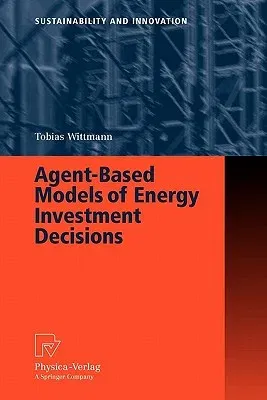As societies face the challenge of securing an efficient and
environmentally sound energy supply, researchers have strived to
determine the future development of energy consumption, infrastructure
and technology endowment.
This book proposes a new agent-based approach to studying the
development of urban energy systems. Decisions of private and commercial
investors and operators are modeled using a bounded rational decision
model which are parameterized by socio-economic data. The study goes on
to analyze the impact of firms' competition on technology diffusion and
calculate diffusion curves for energy technologies such as solar
collectors, boilers and efficiency upgrades for buildings. While making
an important methodological contribution to the field of energy
modelling, the author also presents practical results which will help
urban planners and policy makers take more accurate decisions.
As societies face the challenge of securing an efficient and
environmentally sound energy supply, researchers have strived to
determine the future development of energy consumption, infrastructure
and technology resources.
This book proposes a new agent-based approach to studying the
development of urban energy systems. Decisions of private and commercial
investors and operators are modeled using a bounded rational decision
model which are parameterized by socio-economic data. The study goes on
to analyze the impact of firms' competition on technology diffusion and
to calculate diffusion curves for energy technologies such as solar
collectors, boilers and efficiency upgrades for buildings. While making
an important methodological contribution to the field of energy
modeling, the author also presents practical results, which will help
policy makers and urban planners make more accurate decisions.


